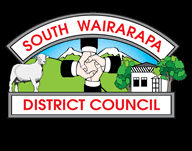South Wairarapa District Council
Collective waste management plan cleans up inefficiencies
 Reduced costs, more efficient service, and more effective recycling have been the outcomes of a new collective Solid Waste Management Plan for the Wairarapa District Council.
Reduced costs, more efficient service, and more effective recycling have been the outcomes of a new collective Solid Waste Management Plan for the Wairarapa District Council.
The three councils involved in the scheme, Masterton, Carterton, and South Wairarapa District Councils, are the only councils with a combined District Plan, and the group have taken that one step further with a new collective agreement.
“The arrangement with the previous contractor, Transfield, was coming to an end,” says Dr Jack Dowds, Chief Executive of the South Wairarapa District Council. “And while they were complying with the contractual conditions, we were looking for more attention to detail.”
Being effective is maximising the outcome of what you plan to achieve. Efficiency is achieving the correct outcome that contributes to the organisation’s objectives and maximises that at least cost.
The new contractor, Earthcare, convinced the three councils that they were able to provide that enhanced service. “They are much more into splitting waste,” says Dr Dowds.
Improvements include more efficient collection from houses, sticking to the prescribed routes, and cleaning up wayward rubbish after the truck has moved on.
Dr Dowds says the move has also brought about the use of plastic bags instead of paper. The paper bags caused problems by breaking on the streets before collection. Although this is a contentious issue, he says there is no oxygen in a landfill and therefore very little difference between the biodegradability of paper and plastic rubbish bags.
“Some of the public did not like this change, but the difference is not as dramatic as it sounds.”
Because the landfill is in Marton, 200km from the collection area, the councils are intent on reducing volume further. “We are charged by the tonnage, so we are working on how to reduce the quantity, including greater recycling, particularly of bottles, which are heavy,” Dr Dowds says.
The three councils are also discussing with their contractor how they might collect food waste more efficiently. It is hoped that this will enable householders to separate their compostable green waste, which accounts for around 40% of household waste. Apart from the financial benefits, Dr Dowds says green waste decomposes in landfills and contributes to global warming.
Currently, the Council collects garden waste from transfer stations, mulches it, and disposes of it locally.
Dr Dowds estimates that the new arrangement is cost-neutral but that the Council saved about $100,000 in not having to incur separate contract preparation costs because Carterton District Council and Masterton District Council had already entered into the contract with Earthcare. As time progresses, however, further savings will be made as recycling increases and the loads to Marton reduce.
There will, however, be additional costs incurred in recycling because of greater volume.
Instrumental in establishing this initiative in the South Wairarapa was the Council’s Group Manager, Infrastructure and Services, Mark Allingham.
Although the Council has not surveyed public perception, anecdotally the new system has been well received. The scheme as a whole has improved the effectiveness and efficiency of how the waste stream is managed throughout the Wairarapa.
Based on an interview with Dr Jack Dowds, Chief Executive, on 20 June 2012.
Disclaimer: This case study is the entity’s story – we have not audited the facts but have confirmed with the entity that its story is fairly represented.
